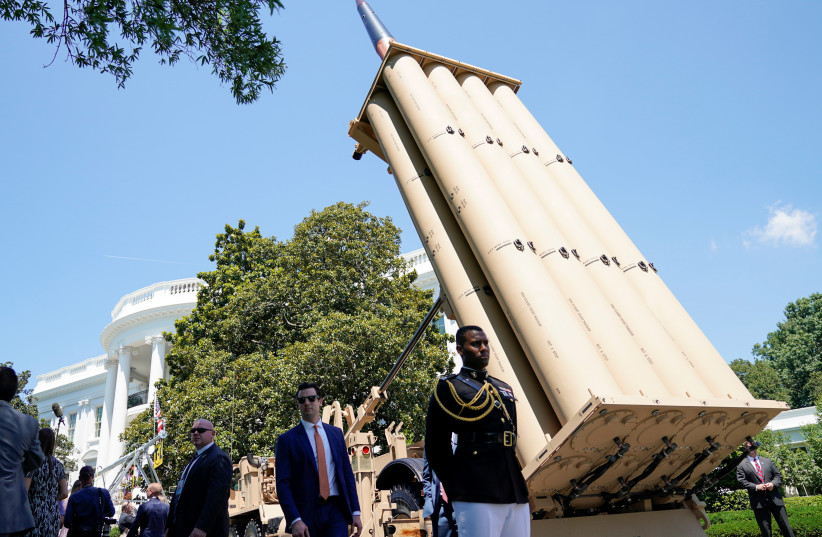Over the past five years, Houthi terrorists in Yemen have launched more than 4,100 violent attacks against Saudi Arabia. This includes more than 1,000 ballistic missile and drone attacks against Saudi cities, airports, and other civilian population centers. More than 100 Saudis have been killed in these attacks, and hundreds of more have been wounded.
While the Houthis are directly responsible for launching these attacks, they are being armed, advised and encouraged by the terrorist regime in Tehran. When I was last in Saudi Arabia in September 2019, the Iranians directly attacked Saudi oil refineries with deadly drones launched from Iranian soil.
Yet rather than stand solidly with the kingdom – one of America’s most important allies in the Middle East – President Joe Biden came into office calling the Saudis a “pariah state” and ordering the Pentagon to stop selling military equipment to the Saudis to fend off, much less defeat, the Houthi terrorists.
What’s more, in April 2021 The Wall Street Journal broke the news that “the US has removed at least three Patriot anti-missile batteries from the Gulf region, including one from Prince Sultan Air Base in Saudi Arabia.”
In September 2021, the Associated Press reported that Biden had gone further, explaining that “the US has removed its most advanced missile defense system and Patriot batteries from Saudi Arabia in recent weeks, even as the kingdom faced continued air attacks from Yemen’s Houthi rebels.” This included the removal of the Terminal High Altitude Area Defense unit.

According to the AP story, “a THAAD can destroy ballistic missiles at a higher altitude than Patriots.”
WITH THE Saudis feeling increasingly vulnerable not only to Iranian-built missiles and drones but potentially to an arsenal of Iranian nuclear weapons – especially if the Vienna talks break down or lead to a lousy deal – it is time for the Israelis to step in.
Over recent decades, the Israeli military has built a state-of-the-art air defense system capability that has become the envy of the world. The multilayered system includes defenses against long-range, medium-range, and short-range rockets, as well as drones and rockets.
The Iron Dome system, for example, has a consistent record of shooting down some 90 percent of the rockets it is deployed against.
Prime Minister Naftali Bennett should seize the moment and open talks with Saudi Crown Prince Muhammad bin Salman, widely known by his initials MBS. In exchange for a full peace and normalization treaty, why not offer to match Israeli technology with Saudi money to build a world-class air defense system to protect the citizens of the kingdom?
The deal could also include production facilities so both countries could build their own interceptors and not have to rely on the Biden administration, or other future American administrations that refuse to fund or provide urgently needed defense systems, or drag their feet in doing so.
Once implemented, the deal could be expanded to allow the Saudis and Israelis to help other moderate Arab states in the region build far more advanced air defense systems of their own. This past week’s missile and drone attacks on the United Arab Emirates reveal that the Emiratis are far too vulnerable and need such a system. The Bahrainis also do, among others.
Casual observers of the Middle East might be skeptical. Even experienced regional analysts might question whether the Saudis would agree to a peace and normalization treaty with Israel at all, much less in exchange for a partnership on missile and drone defenses. Maybe they are right. But I don’t think so. For several years, the Saudis have been actively weighing whether peace with Israel is in their supreme national interests. And even if the royals think that it is, will the Saudi people agree?
It is time for Israel to find out.
Prime Minister Bennett should make a bold offer to King Salman and MBS – quietly, of course, so that the Saudis have room to consider such an offer without immediate public or international pressure or scrutiny. But this may be just the move the Saudi royals need to convince their population that peace with Israel comes with real and tangible benefits for them. Especially as the Iranian threat worsens by the day.
The writer is a New York Times best-selling author based in Jerusalem with some 5 million copies of his novels and non-fiction books in print. His latest non-fiction book, Enemies and Allies, was released last September.
